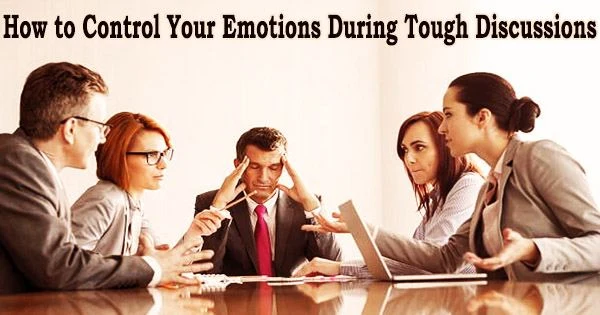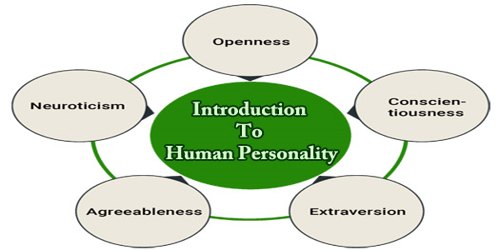Your ability to have a satisfying conversation will depend on the emotions you bring into it and maintain throughout. People you are with can have their brains opened or closed depending on how you feel.
You will experience emotional responses during challenging interactions, despite your best efforts. Depending on how soon you decide what to feel instead, you have the ability to change the situation.
You can’t blame others for your emotional reactions. When your dignity, identity, or basic necessities are threatened, your brain puts up defenses to defend you. You can choose to ignore the conflict and stew in your animosity, rush to defend yourself, or just say you’re sorry in the hopes that it will go away. Your pattern of reactivity is deeply ingrained in your brain.
Emotional reactions start in your body and then distort your words and actions. If you don’t catch your emotions at first “twitch,” they make decisions for you. You then justify your reactions instead of consciously choosing.
Emotional Power
Automatic patterns of behavior are difficult to override. You must develop emotional self-awareness to take back control of your brain. By becoming aware of your responses and then inhaling the emotions you desire, you can overcome your brain’s tendencies. Only then will you be able to view people differently, engage your curiosity rather than your judgment, and accept their viewpoint even when it differs from your own.
They might open up to hearing your experience and desires once they sense that you are paying attention and respecting their opinions. The only way to steer a difficult conversation around points of contention is with respectful, attentive listening.
When you choose how you want to feel, people feel your generative power. If not, your emotions weaken your impact. You can inspire feelings of possibility or fan the flames of discord.
What Triggers Your Autopilot
Suppressing emotions doesn’t help. People still feel the negative energy. When they sense you are stuffing your feelings, they don’t feel safe being fully open and honest with you. You have to fully shift your emotional state for them to trust you.
Your emotional triggers are based on unmet social needs. From the time you were born, you repeated behavior that brought you positive attention, love, and/or safety. You learned how to get what you needed first from your family.
Then, as you started adjusting to life outside of your family, you discovered what you needed to feel secure or at ease in your social circles. Your success on the personal or professional front was powered by having your needs addressed. These repeated behaviors became your personal strengths.
You expect to get what you need when you apply your strengths, which have helped you get through life thus far. You might want your job to be respected, you might want to adhere to certain procedures, you might want your insightful contribution to be acknowledged, or you might just want to feel noticed and understood.
In this page, you’ll find a list of common emotional triggers that might help you pinpoint your social requirements. When your social expectations are not satisfied, you may respond in a range of ways, from outward displays of rage to shutting down.
Think about the last time you felt irritation, anxiety, or disappointment while interacting with others. What did you expect to get from a friend or colleague that was withheld or disregarded? Did you not feel valued? Did you fear they didn’t really need you?
What about when you led a team meeting or coached a new boss and it didn’t go as you had hoped? Were their reactions dismissive? Consider what your brain thought you were losing so you might be more objective with your reactions in the future.
Don’t let your inclination to assert yourself, persuade others, or withdraw make you feel ashamed or furious. Whatever level of emotional maturity you perceive yourself to have, your brain will automatically trigger responses before your “higher self” has a chance to step in.
Exercising Emotional Choice
Because of your brain’s quick reaction time, the skill is not to stop yourself from reacting. You want to develop your ability to quickly shift your emotions following a reaction.
Forgive yourself for being an imperfect human. Only then can you begin to notice your emotions without being distracted by being angry with yourself.
Noticing you are reacting is the first step. Your self-awareness gives you the freedom to choose how you want to feel. Then you can breathe the feeling into your body so the shift is complete.
- Choose how you want to feel before the conversation. Choose one or two words that represent how you want to feel when you enter and interact. Do you want to feel calm and courageous, caring and curious, or calm and confident? If you notice yourself reacting, use these words throughout the conversation to bring your emotions back to where you want them to be.
- Pay attention to your body. Do you hold irritation in your stomach, shoulders, or jaw? When you are anxious, does your heart beat faster and the back of your neck heat up? During the conversation, notice any tension in your body. The quicker you notice your reactions, the quicker you can shift them.
- Relax. Breathe and exhale to release the tension. Let the blood flow more freely to your brain.
- Choose. Fill your body with the emotional keywords you chose before the conversation. Allow yourself to feel the shift before you speak.
You can practice these steps at any conversation or situation that annoys or frightens you.
Developing the habit of noticing and shifting your emotions takes time. You become competent, not flawless, via practice. You’ll soon learn to control your emotions, and you’ll be able to use them to steer conversations toward satisfactory conclusions.
















